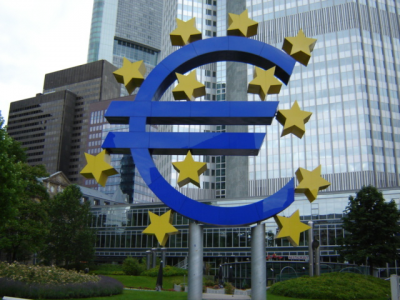In summer 2014 Lithuania was accepted into the Eurozone and Europe witnessed the ECB’s decision to reduce its key refinancing rate from 0.25% to 0.15%. As a result, Vytautas Žukauskas, senior policy analyst at the Lithuanian Free Market Institute, in his commentary raised important questions concerning the ECB’s decisions. The questions addressed in the article still remain relevant (the ECB further reduced the main refinancing rate from 0.15% to 0.05% as of 10 September, 2014).
In summer 2014 Lithuania‘s adoption of euro has finally been greenlit. In 2015 not only Lithuania will get the euro, but also it‘ll be able to directly participate in decision making about the single European currency. The chairman of the Central Bank of Lithuania will become a member the Governing Council of the European Central Bank, which is responsible for monetary policy for the euro area. Thus, if Lithuania wants to properly represent it‘s interests, it has to join the debate concerning decisions of the ECB.
In June 2014 Mario Draghi, president of the ECB, announced some new monetary policy measures aimed to stimulate economic growth and ward off broad-based price declines. These stimulative monetary policy tools evoked many responses – though not all of them were positive ones.
During the press conference on the 5th of June Mr. Draghi was asked to respond to the criticism from the German Savings Bank Association. It claimed that ECB expropriates German savers and asked what message the ECB was sending to people, which were suffering from particularly low interest rates.
This question is fully understandable as on the same day the ECB announced that they were decreasing the main refinancing rate (the interest rate which banks do have to pay when they borrow money from the ECB) from 0.25% to 0.15%.The lower rates, according to ECB, were supposed to encourage commercial banks to grant more loans to businesses or households.
What was the answer of Mr. Draghi to this question? Rather cynical. He said that the ECB set rates only for commercial banks and the choice to decrease interest rates for savers was the decision of commercial banks, not the ECB.
However, lending money to commercial banks at the historic low rate and saying, that interest rate applied for costumers of commercial banks is not the business of the ECB, is simply unfair. If commercial banks can borrow unlimited sum from the ECB at such a low rate, why would they pay more to depositors? The ECB targets an inflation rate at 2% and at the same time they determine a possibility to borrow money at an interest rate lower for 13 times. In this case saving becomes simply unprofitable. Only those depositors, who don‘t know where to spend their money, save it. Therefore, this situation is way more serious than the answer given by the president of the ECB.
Another serious question to be asked is whether the ECB is aware that cheap money policy reduce the incentives for countries to run structural reforms, e.g. to reform inefficient public sector?
The answer once again was very categorical. The ECB claimed to have not reduced incentives, although admitted that they were not satisfied with the progress of structural reforms. However, it’s worth reminding, that the goal of this institution is price stability. As a result, price stability is what they aim with monetary policy as well. It has nothing to do with the reforms.
However, without taking necessary reforms governments are constantly in debt and eventually reduce economic and people‘s income growth. From 2007 to 2013 general EU government expenditure increased from 45.5 to 49 % and general debt grew from 7 to 11 trillion euros. And it does not intend to decrease. In 2013, there were only two countries with balanced budget – Germany and Luxembourg. So the situation is really bad.
From political perspective reforms are always unattractive because all what they usually attract is a lot of public dissatisfaction. It is also true that the ECB is not directly responsible for reforms. However, it would be short-sighted to say that cheap money policy does not affect countries‘ incentives to undertake reforms. Unrealistically low interest rates allow countries to borrow easier, not reduce government expenditure and not think about future. If interest rates were more realistic, incentives to undertake reforms would be much bigger.
Turning back to Lithuania, despite the importance of the discussions about the ECB’s policy decisions, in Lithuania this discourse is still ignored.
Once Lithuania adopts the euro, there will be no easy way out. Lithuanian representatives will have to contribute to important monetary policy decisions, even though Lithuania has limited experience as it does not pursue classical monetary policy for 20 years (since the introduction of currency board model). For Lithuania and each Eurozone country it is important to have a position about the ECB’s decisions as they determine what currency we all have – reliable or depreciating.




